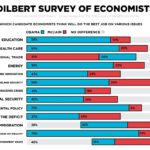-
Trump claims economic successes citing strong March jobs numbers amid criticism of tariffs and inflation.
-
The April tariffs caused global market losses as well as sharp price increases for US consumer goods.
-
While core inflation has dipped slightly, financial analysts and lawmakers warn about long-term economic risks.
Donald Trump said the U.S. economic growth is “roaring,” citing the addition of 228,000 new jobs in March. He credited the economic approach of his administration for strengthening labor markets and reviving manufactures in key industrial states.
He highlighted new industrial activity in the Midwest and South by pointing out recent factory openings and hiring of domestic workers. Trump said that the data is proof that the economic momentum in America is shifting.
Official data show that despite the increase in jobs, the U.S. Gross Domestic Product (GDP) contracted 0.6% in the first three months of 2025. Economists attribute the decline to trade disruptions, and a weaker consumer market. This gives mixed signals about the overall health of the economy.
Tariffs spark global market drop and domestic price surge
On April 2, Trump’s administration introduced a broad range of import duties. These included a general 10% levy as well as higher rates for Chinese goods. He said the move was essential for protecting U.S. industry and restoring balance in trade.
Global equity markets fell after the announcement. Dow Jones Industrial Average fell sharply while other major indices also registered losses. International partners warned of retaliatory actions.
In the U.S. prices for consumer goods, electronics, and food rose almost instantly. Retailers reported tighter profit margins and higher logistic costs, adding to the strain on households already struggling with inflation.
Uncertainty is heightened by the latest inflation data and credit downgrade
Imported goods showed the biggest jumps in April. Core inflation also slowed down, suggesting that some sectors saw a slower rate of price growth.
White House officials cited core readings as a sign that the economy was stabilizing. They attributed the improvement to deregulation, and increased supply-chain control within U.S. border.
Financial institutions expressed caution. Moody’s has downgraded the country’s credit outlook. Banking analysts have warned that higher input costs could be a long-term obstacle to fiscal strategies.
Lawmakers challenge White House Narrative
Democrats reacted negatively to Trump’s remarks on the economy. Chuck Schumer, Senate Majority Leader, said that the GDP decline and unstable market were signs of deeper systemic problems.
Senator Elizabeth Warren expressed concern about the affordability of essential goods. She called for policies that would protect working families from price changes triggered by global supply pressures.
Republican allies defended tariffs by claiming that short-term disruptions were necessary for longer-term strategic gains. Trump’s critics were portrayed as unwilling to accept changing trade dynamics.
Markets remain cautious after Trump’s remarks
Investors showed a limited reaction to Trump’s comments on May 20. The S&P 500 ended modestly lower and trading volumes were low across all sectors.
Investors’ hesitation was attributed by analysts to the uncertainty surrounding tariffs and global supply. They are waiting for upcoming data releases to provide clearer signals about policy direction and impacts.
The energy, technology, and manufacturing sectors have all had mixed results. Financial strategists say that markets are waiting and watching until new fiscal plans have been announced.
This site is for entertainment only. Click here to read more




